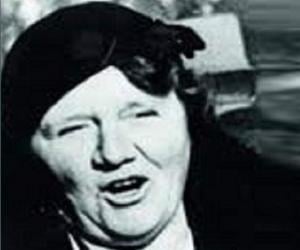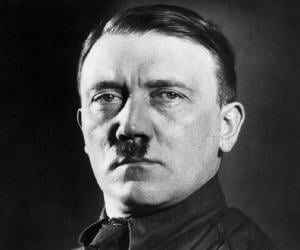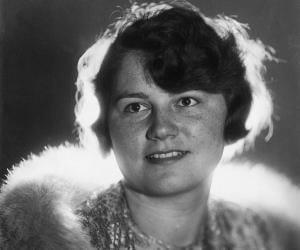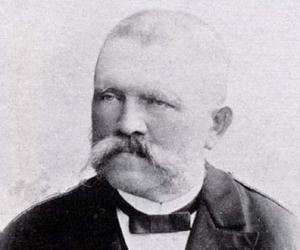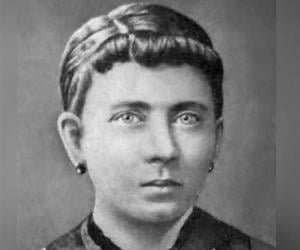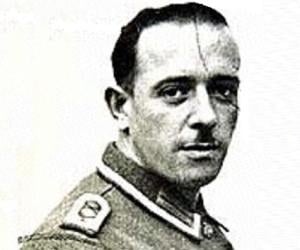Childhood & Early Life
Angela Hitler was born on July 28, 1883, in Braunau, Austria-Hungary. She was the second child of civil servant Alois Hitler Sr. and his second wife, Franziska Matzelsberger.
Her older brother Alois Hitler Jr. was born before their parents’ marriage and had to be legitimized following the wedding.
Angela’s mother passed away soon after giving birth to her, and her father married Klara Pölzl in 1885. Klara gave birth to six children: Gustav, Ida, Otto, Adolf, Edmund, and Paula. Among them, only Hitler and Paula survived childhood.
In 1903, their father passed away, and it was followed by Klara’s death in 1907. Her father left her a small fortune as inheritance.
Continue Reading Below
Later Life
Angela Hitler exchanged wedding vows with junior tax inspector Leo Raubal on September 14, 1903. He passed away seven years later, on August 10, 1910. They had three children together: son Leo (born October 12, 1906) and daughters Geli (June 4, 1908) and Elfriede (born January 10, 1910).
Following the end of World War I, she relocated to Vienna. In his OSS profile on Hitler’s family ‘The Mind of Adolf Hitler’, Walter Langer gave a positive account of Angela, calling her "rather a decent and industrious person".
She apparently served as the manager of a boarding house for Jewish students called ‘Mensa Academia Judaica’. She reportedly shielded her young boarders from anti-Semite rioters.
Angela and Hitler did not communicate with each other for about a decade. That changed in 1919 when he reached out to her. Angela went to see him during his incarceration at Landsberg in 1924.
She moved to the Haus Wachenfeld at Obersalzberg near Berchtesgaden along with her daughters, Geli and Elfriede. In her initial days there, she served as a housekeeper before assuming the charge of the entire household.
Her daughter Geli had a troubled life. She was 20 years old when she started living in close contact with her uncle, moving into his Munich apartment in 1929. Once Hitler became the leader of the Nazi party, he began to control almost every aspect of her life.
Geli was in a relationship with his chauffeur Emil Maurice, but Hitler put an end to it. She wanted to go back to Vienna and frequently wrote to her mother, but the dictator did not let her go. She eventually committed suicide on September 18, 1931, with Hitler’s Walther pistol.
While Angela was critical about how Hitler treated Geli during her interrogation after the war, she continued to work for him even after her daughter’s death. However, their relationship soured as Angela did not approve of Eva Braun, Hitler’s mistress and later wife. As a result, Hitler’s half-sister moved from Berchtesgaden to Dresden.
Angela tied the knot with architect-professor Martin Hammitzsch on February 18, 1936. He gained popularity for designing the famous Yenidze cigarette factory in Dresden and serving as the Director of the State School of Building Construction in Dresden.
Continue Reading Below
Their relationship did not produce any children. Hitler disapproved of her marriage and began referring to her as "Frau Hammitzsch". He resumed contact with her during World War II, as she was the only person in his family with whom he still communicated.
In 1941, Angela’s memoir of her years with Hitler was bought by Eher-Verlag for 20,000 Reichsmark.
Following the destruction of Dresden in the massive British-American aerial attack in February 1945, Hitler ordered Angela to be taken to Berchtesgaden, out of the reach of Soviet forces.
He gave her and their sister Paula over 100,000 Reichsmark as loans. In his last will, he left Angela a monthly pension of 1,000 Reichsmark, but it is unknown if she received any of that money.
After Germany’s defeat in World War II, her second husband took his own life. Throughout her life, Angela maintained that neither she nor her half-brother Hitler had any knowledge of the Holocaust. She passed away on October 30, 1949, in Hanover, Germany, after suffering a stroke.
Facts About Angela Hitler
Angela Hitler was the older half-sister of Adolf Hitler, and despite their strained relationship in later years, she played a significant role in his life during their childhood.
Angela worked as a housekeeper and caretaker for her brother Adolf, and she was known to be a positive influence on him in their youth.
Angela had a strong work ethic and was dedicated to her job as a housekeeper, taking pride in maintaining a clean and organized household for her brother.
Angela married twice and had a daughter, but she largely stayed out of the public eye and lived a quiet life in obscurity after World War II.
Despite their political differences, Angela remained loyal to her family and maintained a sense of dignity and grace throughout her life, even in the face of her brother's controversial legacy.
